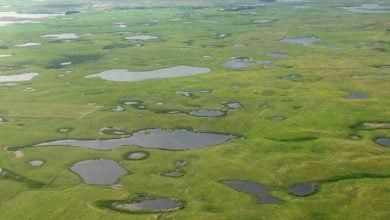In New Brunswick, Canada, in the face of fierce resistance from protesters, Royal Canadian Mounted Police have withdrawn from a blockade constructed by the Mi’kmaq people of the Elsipogtog First Nation and their supporters to halt natural gas exploration in the region.
RCMP officers descended upon the blockade the morning of Oct. 17 using pepper spray, plastic bullets, dogs, fire hoses, and tear gas to disperse the protest, resulting in 40 arrests. Tribal Council members and Elsipogtog Chief Arren Sock were among those arrested. Some officers were in military-style fatigues while bearing sniper rifles.
Estimates suggest a presence of 700 RCMP officers at one point.
Refusing to end the blockade, protesters courageously responded by hurling stones and Molotov cocktails resulting in six RCMP cruisers being set on fire, fracking equipment being confiscated, and the eventual retreat of the police that evening.
Citing concerns for the environment and Indigenous land and water rights, the Mi’kmaq and their supporters began staging demonstrations over the summer in opposition to proposed shale gas exploration by SWN Resources Canada on the tribe’s traditional hunting grounds.
Following failed attempts using legal measure to prevent the fracking of their lands, the blockade was erected on Sept. 30 in order to block access to an SWN compound holding necessary equipment until the corporation agrees to arrange meetings between its representatives, Indigenous leaders, and the provincial government. SWN has refused to meet even this mild demand.
Hydraulic fracturing is the practice of drilling into the rock surrounding natural gas wells and injecting millions of gallons of water, sand and chemicals (many of which are proven to be carcinogenic) in order to release hidden deposits of natural gas. This results in massive amounts of toxic waste that need to be transported out of the area and poses a significant risk of ground water contamination, and the release of uncaptured methane gas into the atmosphere—all of which could greatly threaten the ecological integrity of the Mi’kmaq’s traditional hunting grounds.
Despite attempts by the natural gas industry to present hydraulic fracturing, also known as fracking, as an ecologically responsible method of extracting natural gas from otherwise inaccessible sources, the Mi’kmaq have not been fooled by the obvious greenwashing. An unnamed 17-year-old who had been at the blockade for two weeks was cited saying, “I’m worried about the water and the future of my children.”
The anti-fracking movement has gained significant momentum across the globe because of the ecologically devastating nature of hydraulic fracturing.






